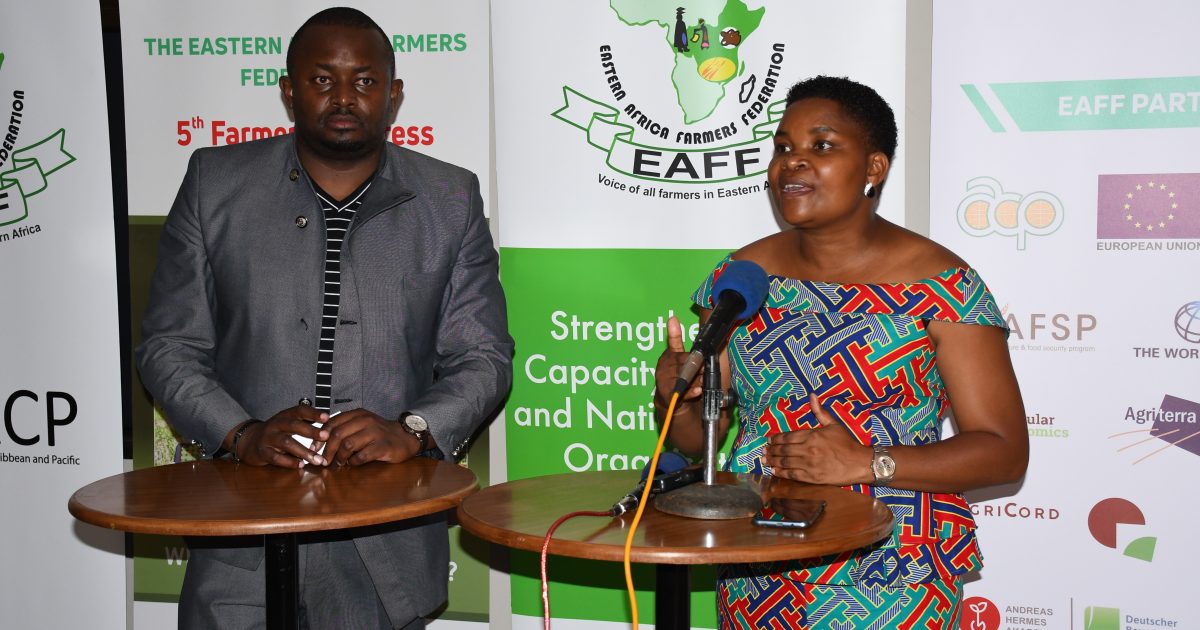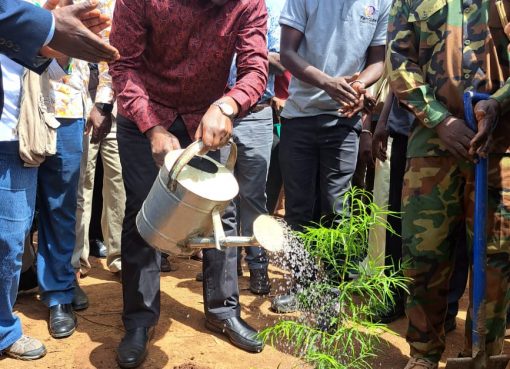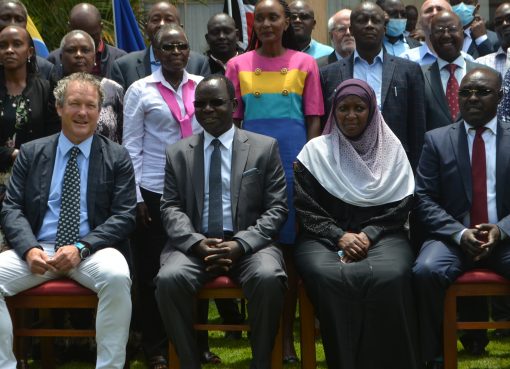The Eastern Africa Farmers Federation (EAFF) has called on Kenyan government and other member states in the region to implement safety nets programmes which will help to cushion farmers against unpredictable calamities.
According to the federation president, Elizabeth Nsimadala, farmers have continued to suffer great losses as a result of emerging roadblocks brought forth by unpredictable weather patterns due to adverse effects of climate change and emergence of COVID 19 pandemic that greatly disrupted both cross-border trade and access to international markets.
Nsimadala said the Covid-19 pandemic which hit last year globally greatly disrupted the agricultural sector as countries moved in to introduce lockdowns and closing of borders affecting the supply chain of goods and farm produces to markets.
Speaking in Naivasha during the federation’s 5th Congress meeting, Nsimadala said that they are working closely with representatives of individual member countries to push for implementation of the programme that will allow farmers to get financial support and protect them from unforeseen shocks.
“Covid 19 pandemic greatly hit the agricultural sector with losses averaging 60 per cent through post-harvest losses due to limited access to markets and unpredictable weather patterns amongst others,” said Nsimadala.
She at the same time called for increased investment to mitigate effects of climate change, address post-harvest losses through innovative storage facilities and also formulate policies that will enhance value addition of farm produce.
On his part, the federation CEO, Stephen Muchiri said the agricultural sector plays a major role in the economic growth of Eastern Africa states and therefore individual governments should put necessary and swift interventions to revamp the sector.
Muchiri said currently, Africa import bill stands at US $ 50billion per year with studies by Africa Development Bank showing that the bill is expected to rise to US$ 100 billion in the next 10 years if governments fail to increase investments in the agricultural sector.
He added that there’s need for governments to intervene and seal loopholes that are exploited by unscrupulous traders to dump cheap farm imports from international markets dealing a big blow to the price of the locally produced goods.
Muchiri added that the Federation is pushing individual members states to put necessary laws and policy frameworks that will create enabling environment for farmers to trade easily, both at local and continental level and also providing information on how farmers can take advantage of the newly ratified Africa Free Trade Area (AFTA) agreement that seeks to remove custom and cross-border tariff barriers to boost trade.
He pointed out that the federation which serves more than 20 million farmers from ten countries in the region has created an E-granary digital platform where farmers can get crucial information on market trends, source of farm inputs, where to buy quality seeds, type of fertilizer to apply, available insurance policy and also where to access credit and financial support among others.
By Erastus Gichohi and Calvin Osiemo




